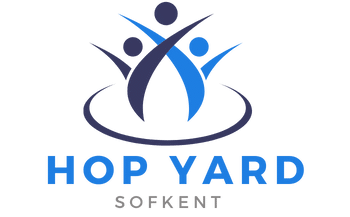Mastering coaching: essential guides for personal growth

Coaching is more than a trendy buzzword; it's a transformative partnership that empowers individuals to reach their fullest potential. From life coaching to executive development, understanding the nuances and benefits of various coaching styles is essential. This guide offers clear definitions, actionable insights, and resources for anyone looking to navigate their personal growth journey effectively. Discover how coaching can be your catalyst for meaningful change and achievement.
Understanding Coaching and Its Impact
At its core, coaching is a transformative process that empowers individuals to achieve personal and professional aspirations. It is not just about giving advice, but rather facilitating a journey of self-discovery and decision-making. Unlike mentoring, where a more experienced individual imparts knowledge, coaching revolves around unlocking a person's potential through targeted questioning and active listening.
A lire aussi : Can UK speech-language therapists develop personalized digital therapy programs for patients with aphasia?
Coaching offers numerous benefits, including enhanced self-awareness, improved performance, and increased motivation. Individuals often engage with coaches to navigate career transitions, overcome personal obstacles, and improve specific skills. This process is designed to foster autonomy and help clients take ownership of their growth journey.
Additionally, coaching varies from similar professions such as counseling and therapy. While counseling addresses emotional distress and therapy focuses on mental health, coaching is fundamentally goal-oriented and development-centric. It encourages clients to set and achieve specific goals with measurable outcomes.
Cela peut vous intéresser : Can UK occupational health physicians effectively use wearables to monitor workplace stress levels?
For those exploring the many dimensions of coaching, resources like https://coaching-hub.net offer invaluable insights. They provide tools and methodologies that help both new and seasoned coaches refine their practices. As coaching continues to diversify into fields like executive leadership and health, understanding its distinct frameworks and models becomes increasingly crucial.
Types of Coaching and Their Applications
Life Coaching and Its Methods
Life coaching focuses on empowering individuals to achieve their personal development goals. Its methods often involve guiding clients in self-discovery and decision-making. Coaches facilitate awareness and support growth by employing coaching strategies that encourage introspection. Techniques such as goal setting and action planning are central, with a strong emphasis on personal responsibility and action.
Business and Executive Coaching Insights
Business and executive coaching are integral for enhancing leadership capabilities and overall organizational performance. Executive coaching benefits leaders by honing their decision-making and problem-solving skills. It often involves performance coaching techniques to align personal effectiveness with organizational goals. These sessions may cover areas like communication, conflict management, and strategic thinking, fostering a culture of continuous learning and development within companies.
Performance Coaching Techniques
Performance coaching focuses on improving skills and competencies through structured feedback and practice. Sports coaching fundamentals are a classic example, centering on skill mastery, mental preparation, and resilience-building. Techniques include setting clear performance metrics and regularly reviewing them to track progress. This approach is applicable across diverse contexts, from sports to business, highlighting the flexibility and adaptability of coaching methods.
Becoming a Successful Coach
Essential Skills for Effective Coaching
Developing the right skills is crucial for any aspiring coach. Active listening forms the foundation, allowing a coach to fully understand the client's goals and challenges. Alongside this, empathy is vital; it enables coaches to connect authentically and support clients through their personal and professional journeys.
Furthermore, the ability to ask powerful questions is a key component of effective coaching. This skill encourages clients to think deeply, fostering self-discovery and personal growth. Goal-setting techniques and strategic thinking are also essential, as they help in crafting actionable plans that guide the client towards success.
Pathways to Certification and Training
Obtaining an accredited coaching certification is often a critical step for those looking to establish credibility. Many institutions offer diverse programs, from executive coaching to life coaching. These certifications not only provide essential knowledge but also teach practical skills through various formats, including courses and workshops. Online options, such as webinars, offer flexibility and accessibility for individuals worldwide, fitting diverse schedules and learning preferences.
Exploring Coaching Career Opportunities
The field of coaching is broad, presenting numerous pathways for specialization. Options range from business and executive coaching to health, wellness, and life coaching. Each path requires distinct skill sets, challenging coaches to continue learning and adapting. Such diversity allows professionals to tailor their careers, whether through focused niches or broader practices spanning multiple areas.
Best Practices and Future Trends in Coaching
Developing Coach-Client Rapport
Establishing a strong coach-client rapport is pivotal for successful coaching engagements. This relationship begins with mutual respect and understanding, which fosters trust. Coaches can achieve this by active listening, mirroring client language, and demonstrating empathy. Furthermore, setting clear expectations and maintaining open lines of communication help solidify this foundation. Engaging in feedback loops allows clients to reflect and adjust their progress with continued support from their coach.
Utilizing Technology in Coaching
Technology's role in coaching is transforming traditional methods. Online platforms and apps offer convenient access to coaching sessions, enabling geographic flexibility. Virtual reality (VR) and artificial intelligence (AI) are emerging, offering immersive scenarios and personalized insights respectively. Such tools enhance engagement and enable coaches to adapt their methods, making service delivery more efficient and tailored.
Emerging Trends in Coaching Profession and Practice
Coaching's future lies in embracing diversity and inclusivity, with coaching practices expanding into new areas such as digital literacy and mental wellness. Coaches are increasingly specializing in niche markets, offering tailored strategies for specific client needs. Additionally, the focus on sustainable change is leading to the integration of neuroscientific findings into coaching strategies, thus enhancing the adaptation of coaching practices to fit evolving professional and personal development landscapes.
